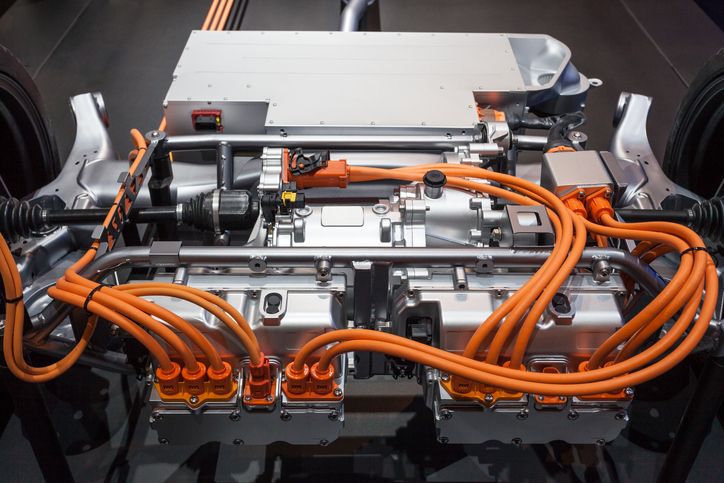Automotive Primary Wire Overview
What is Automotive Primary Wire?
 Automotive primary wire is a type of electrical wire that is used in automotive applications. It is typically made from copper or aluminum and is used to connect various electrical components in a vehicle. Automotive primary wire is often thicker than other types of electrical wire, and it is usually insulated with a durable material such as PVC. This type of wire is designed to withstand the high temperatures and vibration that are common in automotive applications. Some common automotive primary wire applications include engine wiring, headlights, taillights, and interior lighting.
Automotive primary wire is a type of electrical wire that is used in automotive applications. It is typically made from copper or aluminum and is used to connect various electrical components in a vehicle. Automotive primary wire is often thicker than other types of electrical wire, and it is usually insulated with a durable material such as PVC. This type of wire is designed to withstand the high temperatures and vibration that are common in automotive applications. Some common automotive primary wire applications include engine wiring, headlights, taillights, and interior lighting.
Automotive Electrical Wire Types
When it comes to selecting the right type of automotive wire for your application, you'll need an understanding of how different environments affect that choice. PVC and Cross-Link wires offer varying levels or resistance against high temperatures in different areas which could be important depending on where they are used within a vehicle's system. For more information on automotive wiring, check our guides.
PVC Automotive Primary Wire
The durability of PVC makes it an ideal material for under-hood or cabin applications in cars. It has insulation that is highly resistant to oil, grease and acids, making it an ideal fit for automotive applications.
Common types of PVC automotive primary wire include:
- GPT Wire: GPT wire, with its standard wall often used for trailer and general circuit wiring provides excellent protection against the elements. GPT has a temperature range from -40°C to 85ºc which means it can handle most automotive conditions.
- TWP Wire: A thin-walled wire with a temperature rating up to 105°C. TWP is lightweight and durable, making it useful in many applications.
- HDT Wire: Heavy-duty wire with a thick wall to withstand physical wear that often comes with surface wiring. Rated to 85ºC.
Cross-Linked Primary Wire
- GXL Wire: A thin-walled, lightweight wire with heat resistance up to 125ºC. Good degree of flexibility making it commonly used in trucks and trailers.
- SXL Wire: Perfect for general circuit wiring. It has excellent heat and abrasion resistance, as well as an operating temperature range from -40°C to 125º C
- TXL Wire: Excellent choice for general circuit wiring because it has a thin wall or thickness, high heat resistance and flexibility. The addition of these qualities make TXL perfect when you need to work in tight spaces with limited space as well at low temperatures from -40°C all the way up into 125º C!
Comparison of Automotive Primary Wire
| Wire Type | Conductor Material | Insulation Type | Temperature Range | Voltage Rating | Gauge Size | Typical Applications |
|---|---|---|---|---|---|---|
| GPT | Copper | PVC | -40°C to 80ºC | Up to 50V | 20 to 10 AWG | General wiring |
| TWP | Copper | Thin-wall PVC | -40°C to 105ºC | Up to 50V | 24 to 10 AWG | Low-voltage applications |
| HDT | Copper | Heavy-duty PVC | -40°C to 80ºC | Up to 50V | 20 to 8 AWG | Robust wiring needs |
| GXL | Copper | Cross-linked Polyethylene (XLPE) | -40°C to 125ºC | Up to 50V | 22 to 8 AWG | Engine compartments |
| SXL | Copper | Cross-linked Polyethylene (XLPE) | -40°C to 125ºC | Up to 50V | 20 to 8 AWG | Higher insulation needs |
| TXL | Copper | Thin-wall cross-linked Polyethylene | -40°C to 125ºC | Up to 50V | 26 to 8 AWG | Space-saving wiring |
Need support in finding the right solution for your application?
Contact IEWC to connect with a member of our team!
Related Resources

Electric Vehicle Wiring Specifications
As consumer demand continues to rise, so does the need for electric vehicle wire, cable, and other charging components.Learn More
Automotive Battery Cable Specifications
Some common questions arise regarding automotive battery cable specifications and the usage of cables in other applications.Read More
Automotive Industry Wiring Standards
The automotive industry has long relied on a set of standards to ensure the safety and reliability of vehicles.Read More


